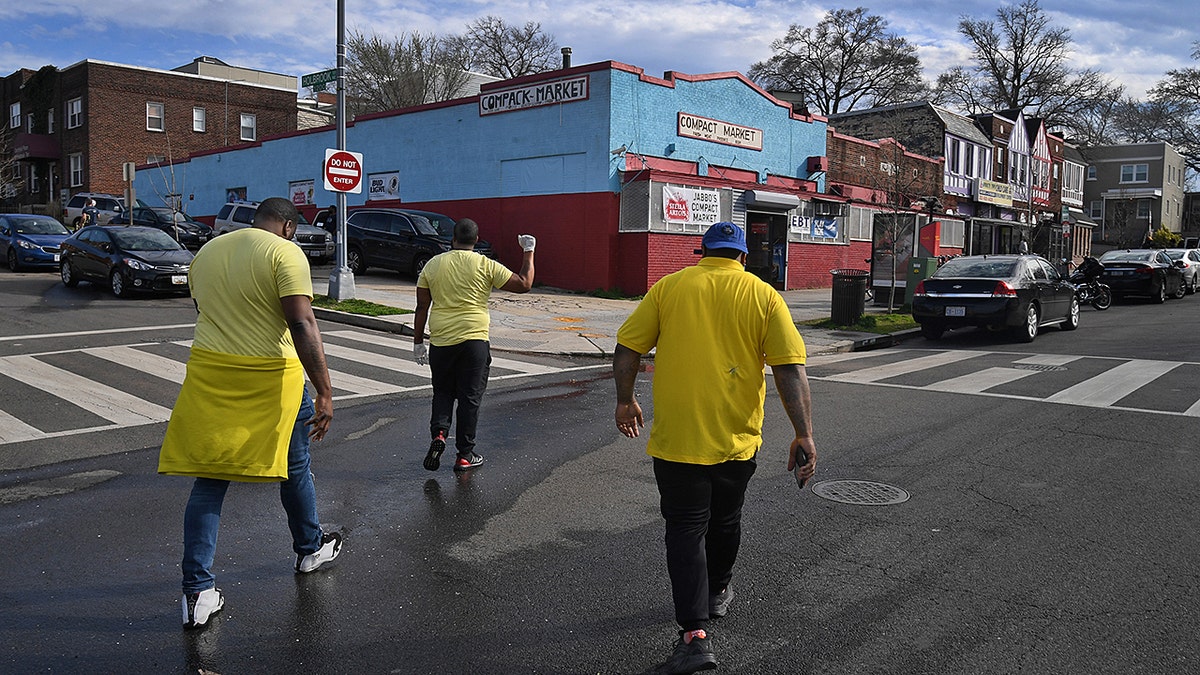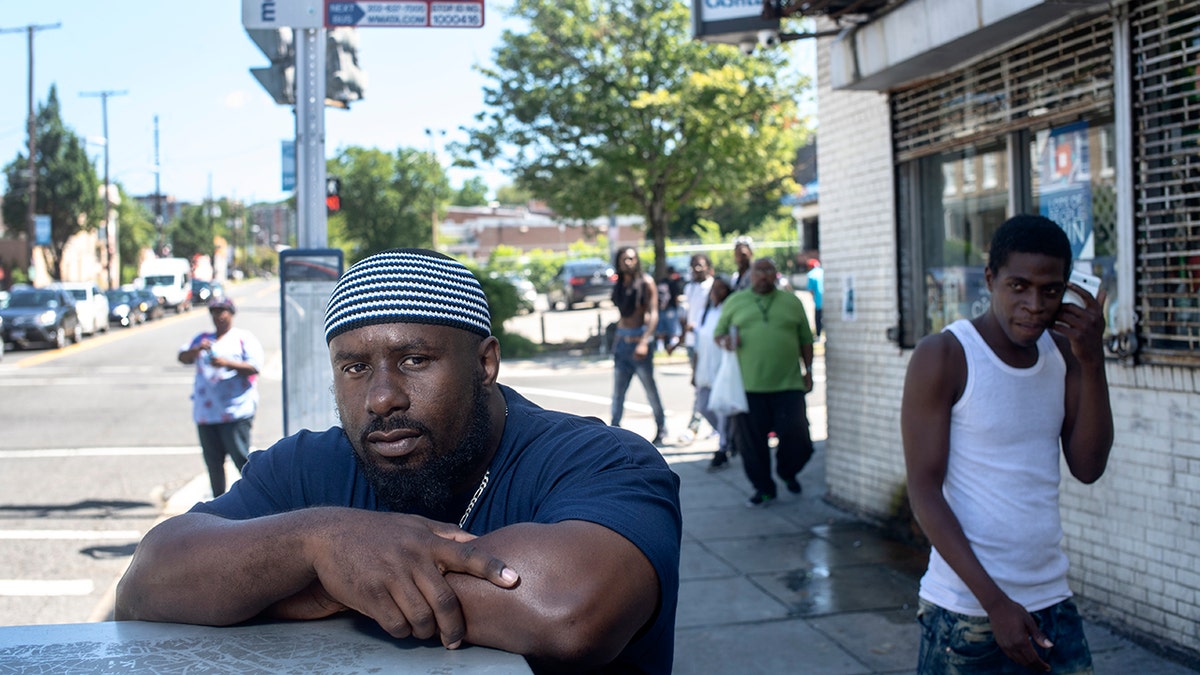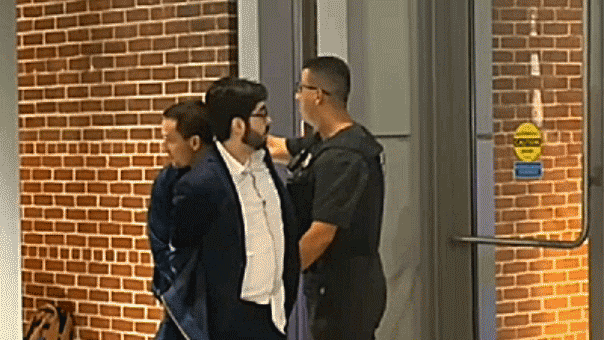DC police chief rails against crime approach, says defund rhetoric not helpful
Former DC homicide detective Ted Williams and former Las Vegas metropolitan police department Lt. Randy Sutton weigh in on the rise in crime
Washington, D.C., crime reporters are highlighting a lack of evidence to determine whether or not the District's violence interrupter program is helping to prevent homicides.
D.C. Witness, a news outlet tracking homicides in the District, told Fox 5 D.C. that there is no evidence the alternative policing program is putting a stop to violent crime in the area after the D.C. City Council voted to decrease Mayor Muriel Bowser's $11 million funding proposal to hire more police officers to $5 million and spend $6 million on safety programs to combat violence, Fox 5 reported.
"We are not in the position to say what is a solution or is not a solution," D.C. Witness editor-in-chief LaTrina Antoine told the outlet.
While D.C. Witness is not against funding such initiatives like the capital's violence-interrupter program, a safety initiative led by respected members of the D.C. community that was first introduced in 2019, it believes there should be an evaluation of how the program is helping to lower the number of homicides in the area.
3 DC COPS SUSPENDED AFTER 1 CAUGHT ON CAMERA REPEATEDLY PUNCHING SUSPECT DURING ARREST: POLICE CHIEF
D.C. Witness found that homicides are actually increasing where violence interrupters are stationed, and in places where the prevention program seems to be working, violence seems to be pushed to the outskirts of those areas, the outlet told Fox 5.
Several city council members, including Chairman Phil Mendelson, did not respond to Fox News when asked whether the city council is tracking homicide numbers in areas where violence interrupters are working to determine whether the program is useful in stopping violent crime. Meanwhile, The Office of the Attorney General, which started the violence-interrupter program, is tracking numbers in areas where the crime stoppers are working.

Members of the "Cure the Streets" squad head to a local market to interact with local youths in N.E. Washington, D.C. on March 20, 2020. (Photo by Michael S. Williamson/The Washington Post via Getty Images)
But the D.C. Council’s judiciary committee told D.C. Witness that it did not have any data showing how the initiative was working in the areas where it has been deployed. The council said it is relying on the organizations that run the violence interrupter program — Office of Neighborhood Safety and Engagement and Cure the Streets, a nonprofit run out of the Office of the D.C. Attorney General — to keep track of the numbers, Antoine and Amos Gelb, publishers of D.C. Witness, wrote in a July 30 op-ed for The Washington Post.
DEFUND THE POLICE DEMS ARE SILENT AFTER DC PASSES 100 HOMICIDES IN 2021
Several days after the Post published the op-ed, D.C. Attorney General Karl Racine argued in an Aug. 3 blog post that "day by day," violence interrupters "are having a real impact and making their neighborhoods safer" but suggested the program needs more time to show meaningful results.
"Early data indicates this public health approach to treating violence is working in these neighborhoods," Racine wrote. "…To fully evaluate the program, we need the program to be up and running for at least three years to have enough numbers and patterns, and then we need to conduct a rigorous analysis of the data to see what is successful and what needs to be adjusted."
Early data shows that homicides with guns in the areas where violence interrupters were stationed decreased in 2020 compared to 2019 but went up slightly in 2021.
VIOLENT MONDAY NIGHT, WEEK IN DC PROMPTS CONCERNS FROM POLICE, RESIDENTS
D.C. Metropolitan Police Department (MPD) statistics show a 0% change in violent crime in the District overall compared to 2020 and a 3% rise in homicide (115 in 2020 compared to 119 in 2021). Since 2019, however, the city has seen about 6% increase in homicides, according to D.C. Witness' homicide tracker.
"That same data shows that the city’s violence interrupter programs … aren’t doing what they claim: preventing violence," Antoine and Amos Gelb wrote in their op-ed.

Duane Cunningham who goes by Wayne is a member of DC's Violence Interrupters ... a group that imbeds in violent D.C. neighborhoods to try and stop shootings before they happen. (Photo by Marvin Joseph/The Washington Post via Getty Images)
Crime in the District has come into the spotlight as several recent shootings made national headlines in July when a 6-year-old girl was killed by gunfire; shots were fired outside a Major League Baseball stadium; and at least two people were injured in a shooting in broad daylight on one of the busiest streets in the nation's capital.
Bowser's 2022 budget proposal released in May includes $7.8 million for additional violence interrupters and $400,000 for "additional credible messengers."
MPD Chief Robert Conte told Fox 5 that while he is "disappointed" that the department "received less than half of the additional funding for what we would be able to hire next year, we will be working to leverage all available resources to protect and serve the residents and visitors of the District of Columbia."
CLICK HERE TO GET THE FOX NEWS APP
"With the budget approved by D.C. Council, MPD will have to operate at its lowest level in more than two decades, and with more than 200 fewer officers than we had in September 2020 for a city that continues to grow in size," he said. "While I am pleased that we will be able to resume hiring in January, slightly earlier than originally anticipated … we will need to continue to think strategically and be flexible as a Department to do the best job we can for the residents of this city with a smaller workforce."
A number of cities across the U.S. have shifted police department funding to community-based safety initiatives in an effort to combat crime using policing alternatives. The new initiatives aim to decrease violence without involving police after George Floyd was murdered by a Minneapolis police officer on May 25, 2020.
D.C. Witness has suggested that its criticism of how the city is evaluating its violence interrupter program does not mean the program shouldn't exist but that resources should be better managed. It also noted that D.C.'s "rising homicide rate is driven by a culture of gun violence that has grown over the past few years, so unless that is addressed, any strategy, including violence interrupters won’t significantly reduce the violence."











































